My relationship with the classical guitar
Written as a note-to-self on how I had fallen in love with the classical guitar, so that I don’t neglect it for so long again.
Just me, my guitar, and my cat, Raindrop. That was all I wanted to need when I fantasized about a devotion to studying the classical guitar on this day, a couple years ago. Prior, I had been thinking about the piano, but it wasn’t very practical because I would have to travel toward one to practice. I also wouldn’t have the space for one in my home. A quiz on the internet told me I should play the oboe, but I’d prefer to use my hands than my mouth and breath.
After discovering that the classical guitar could be tuned to sound like a pipa (a “Chinese lute”) and soon learning that you can also play Bach on it and so much more, I could not stop thinking about how it could be perfect for me. It was the ideal instrument of self-expression, Sharon Isbin wrote, complete without any accompaniment, and you can take it anywhere, cultivating curiosity, a sense of adventure, creativity, sensitivity, and integrity.
Ugh, I could not wait to begin! I spent hours on research. I looked into the history of the instrument, listened to hundreds of podcast episodes interviewing guitarists of today, and became intrigued with the process of building the guitar itself, admiring the craft and especially the design of rosettes. What a beautiful sound. What a versatile instrument that is primarily solo but comes with the possibility of duos, trios, quartets, ensembles, concertos with orchestras. For my own first guitar, one that could last me through the intermediate grades up to “forever,” I finally decided on getting the Córdoba C10 Parlor (Spruce) and I relished that it was going to be all mine.
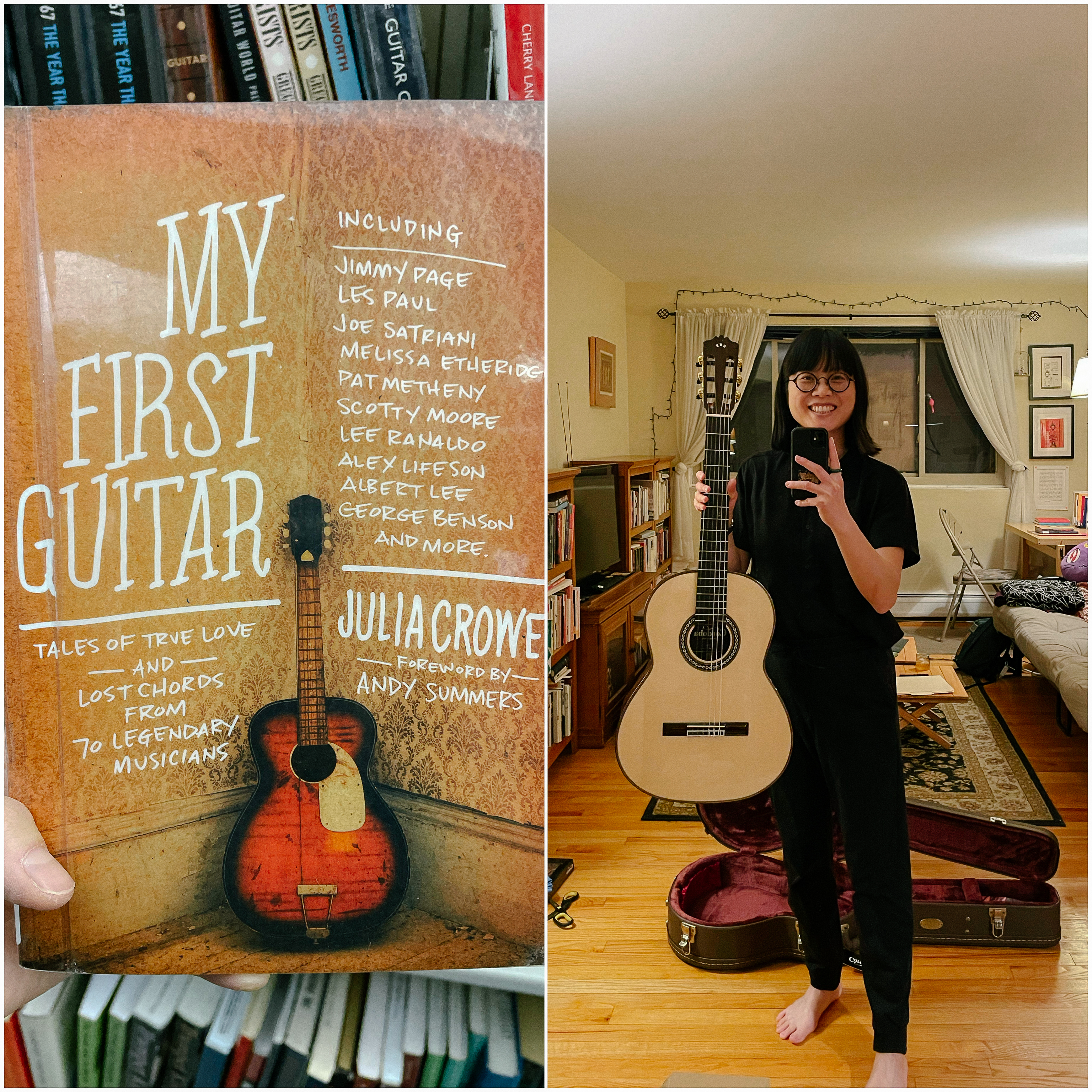
I envisioned living a quiet, solitary life with my guitar. Nothing would take away my dedication and focus. I would make social sacrifices so that I could practice for hours each day. Upon waking up, I would think about what I’ll work on next to develop my musicianship. I would be patient with my process but not complacent. It would be my private joy. I would not pressure myself to perform for anyone. If I had to go on a trip, I would figure out the logistics to bring the guitar along, and together, we would look like Julian Lloyd Webber with his cello on the cover of his autobiography.
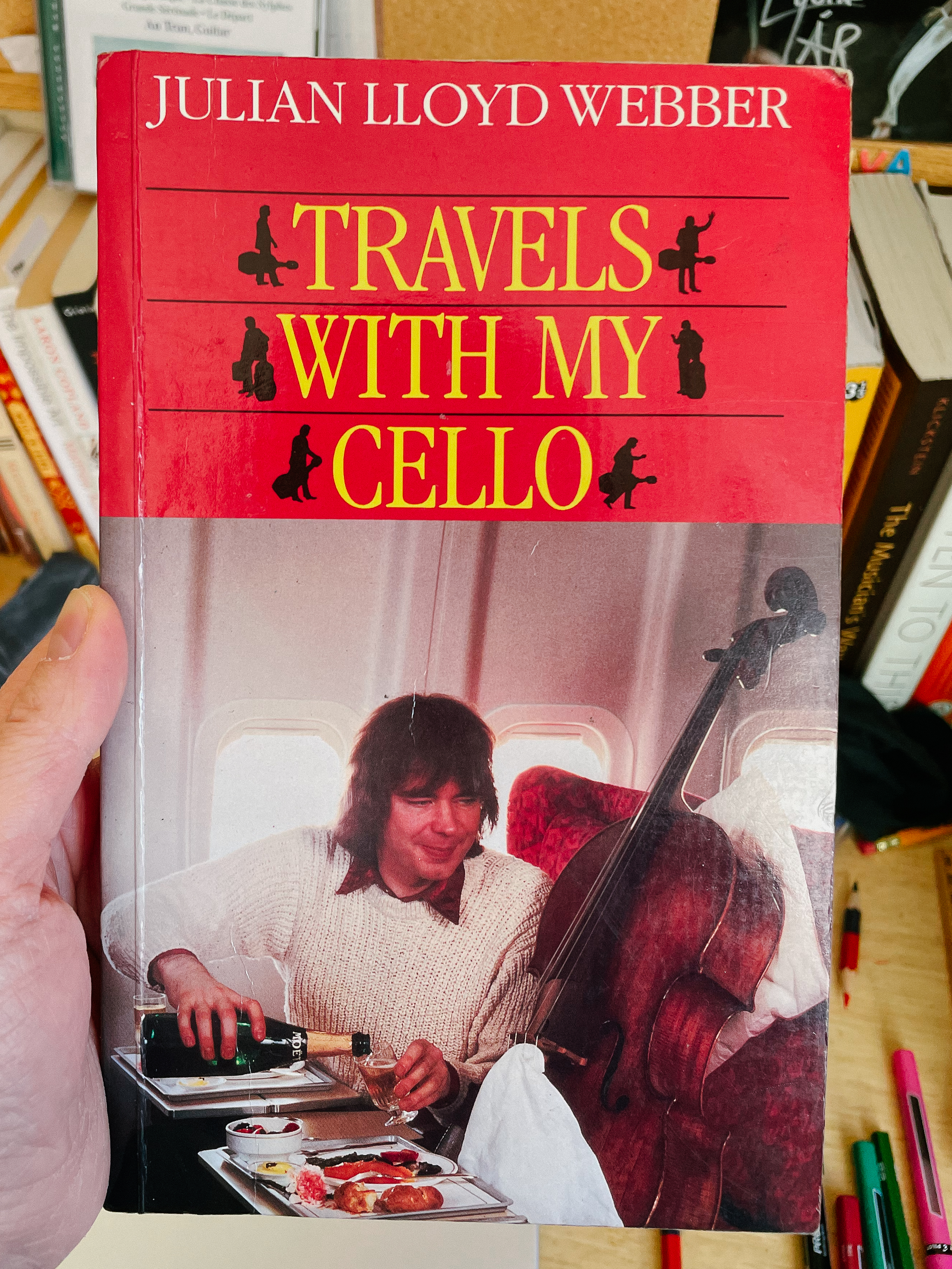
I grew out the fingernails on my right hand, signed up for a few months of private lessons, took an overnight train to attend the Cleveland International Classical Guitar Festival (CICGF) where I felt shy, flew to New York for the 50th anniversary of the Guitar Foundation of America (GFA) Convention where I felt like an imposter, then became a student of the Classical Guitar Corner (CGC) Academy where I feel inspired.
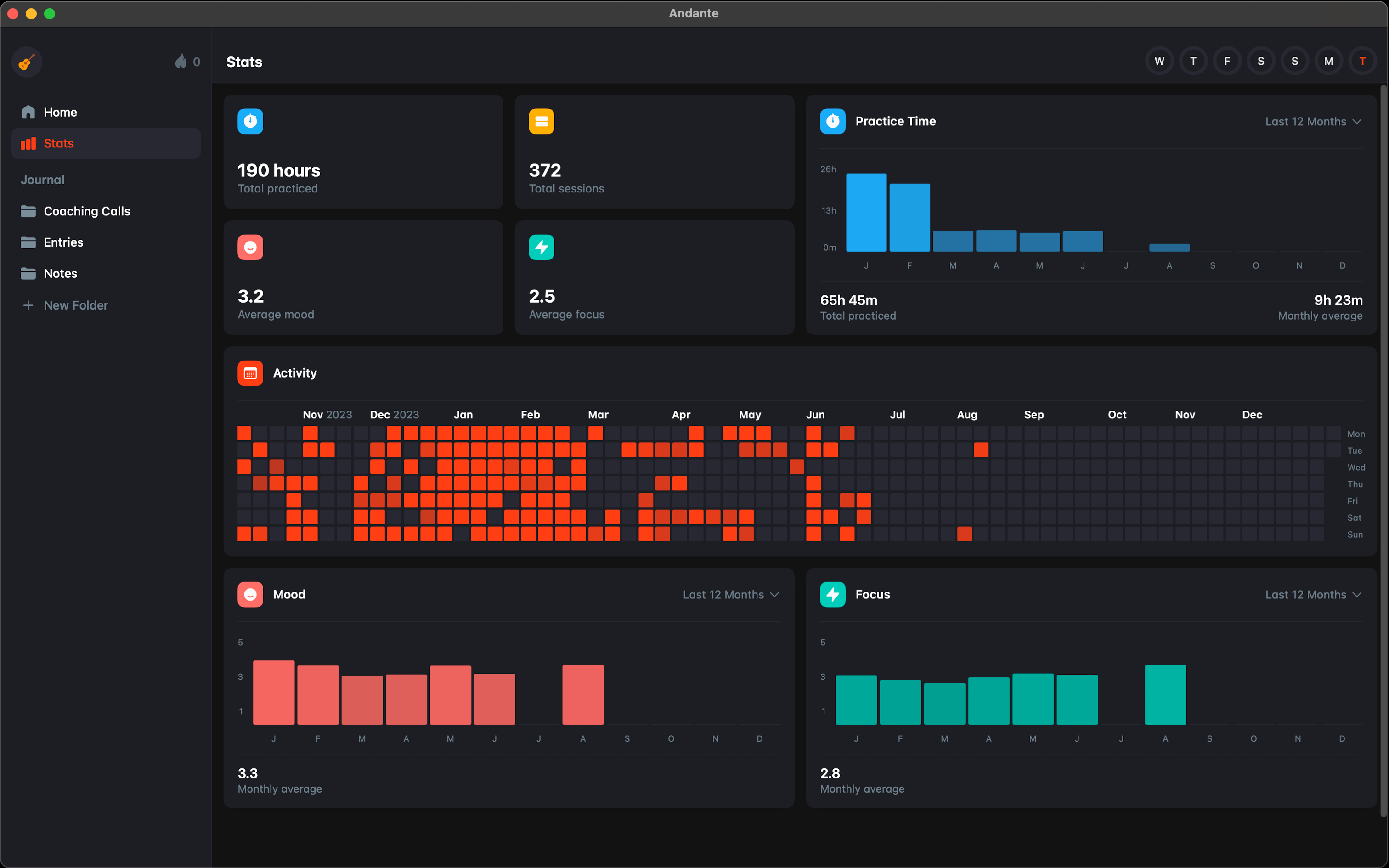
After all that energy spent, you would think I should be able to play at least one song by now. Nope, lol. I am still early in the Grade 1 curriculum after practicing for a total of 190 hours over this two-year period. I make a ton of mistakes. I am still warming up with the G major scale, I struggle to follow along with duets, and I usually set the metronome to 60 bpm. I am going so slowly that I had to go buy a plush snail (whose name is Gnossi, short for Gnossienne) to live on my music stand as a reminder that it’s ok to go this slow. But really, I am making such little progress because I have slowed into a complete stop for the past half-year due to reasons and excuses.
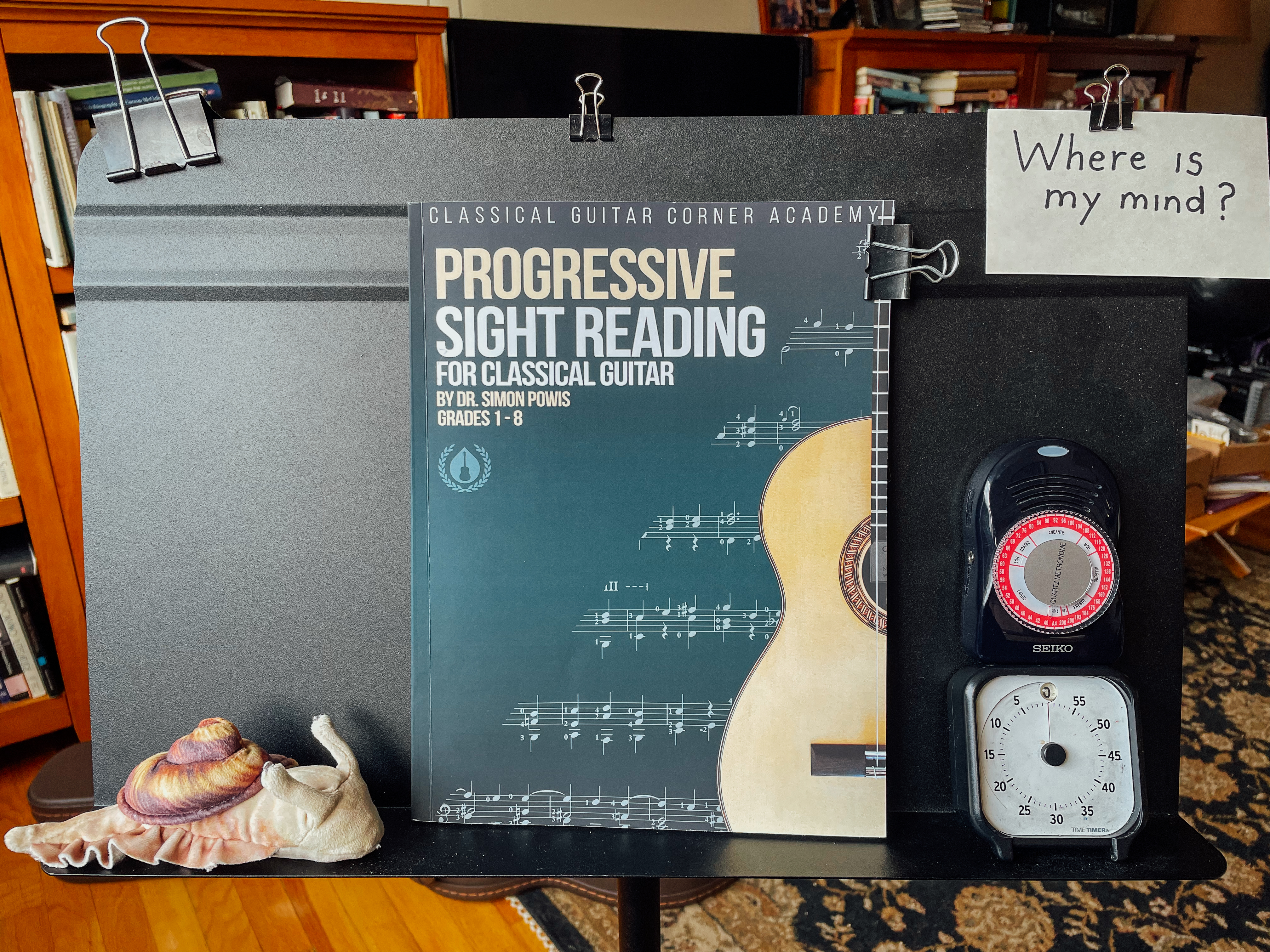
I miss the guitar. I forgot that I had actually been interested in learning guitar since high school. I spent my teen years listening to indie-emo-rock and dreamed of writing my own lo-fi bedroom songs so that I could share my angst and loneliness with someone.
Then while I was in college, my brother and I decided to get and share our “first guitar.” It was an acoustic steel-string Washburn in a “wine red” that I didn’t like. It cost $150 on Musician’s Friend. I tried to learn my favorite song at the time, “Metal Heart” by Cat Power, but I gave up so quickly.
My brother had way more eagerness and discipline to teach himself through YouTube videos. He would later describe having a passion for the guitar and for making music. So it became his instrument (and it still is). With that, and with me not having the confidence to write lyrics and sing them, I never thought I would consider the guitar again.
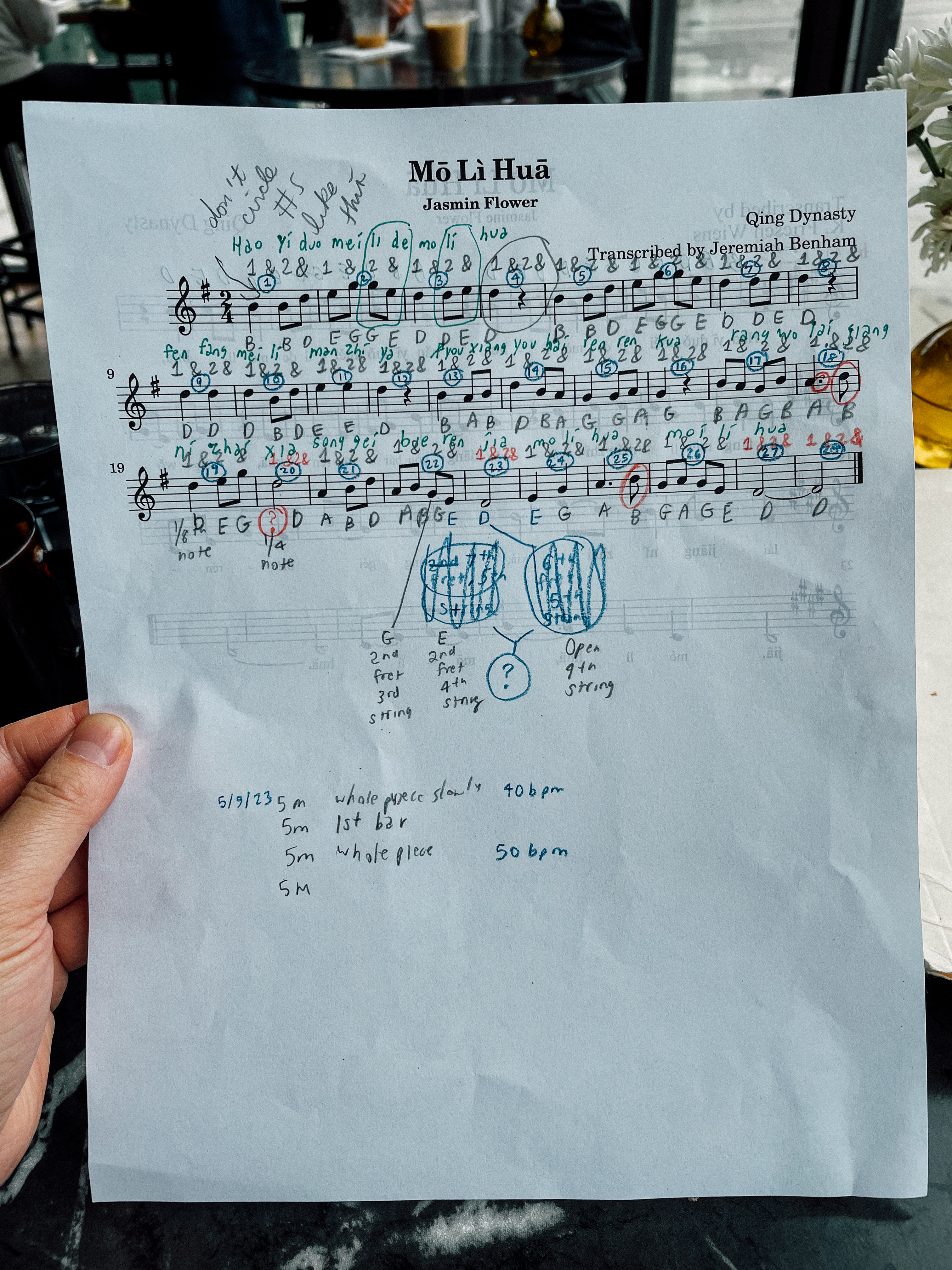
Post-college, I wanted to be a music journalist so that I can get into concerts for free. It seemed cool and I related to William Miller following the band around in Almost Famous. I was attending a lot of indie shows, but whenever I wrote reviews, I felt like I was making things up, like a floral description of wine and all its “notes” for the label, or a blurb of a poetry book that is a poem on its own and that may, or may not, describe the actual book. I found myself using names of genres with no grasp of their meaning. I couldn’t even listen to what’s happening within a song, since I never studied anything about music. Plus a book like 33 1/3’s How to Write About Music wasn’t available at the time.
I really lost touch with music, starting maybe 2014, which I blame on Spotify. I didn’t have Premium for a long time, and I don’t like structuring my music around playlists. I felt so detached and distrusted all the recommendations. And right now, I’m finding out why by listening to Liz Pelly narrate Mood Machine: The Rise of Spotify and the Costs of the Perfect Playlist, which just came out today. There is about a five-year gap in which my life passed by with no music to associate with any memories, which makes me sad. Until 2019 when I saw Portrait of a Lady on Fire. I would then search for performances of Vivaldi’s Four Seasons to re-experience that music over and over, marking the moment I got into “classical music.”
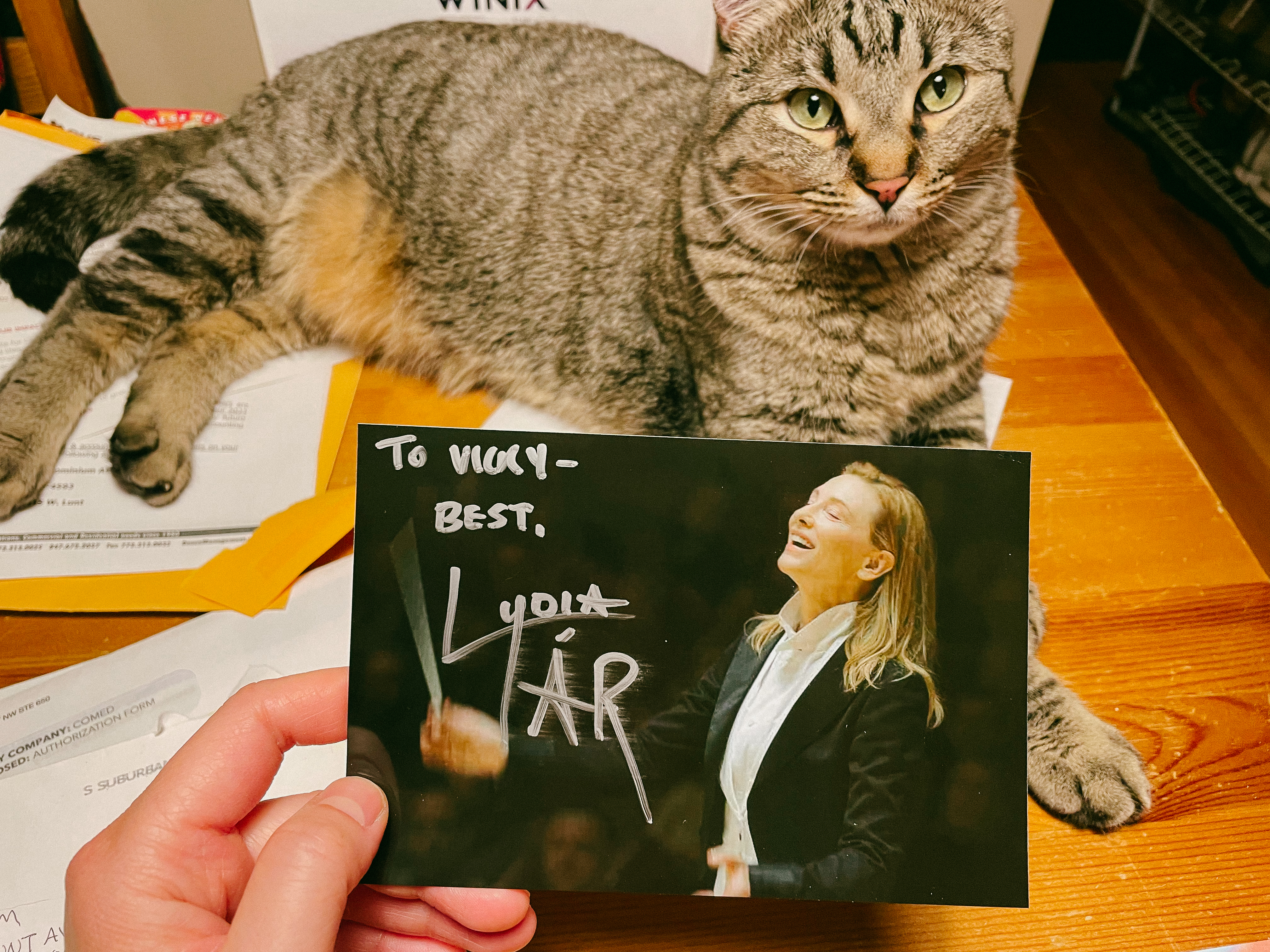
There was later a period when I kept thinking about TÁR, moreso the worlds of music than the trajectory of Lydia Tár’s character. How she was carefully reviewing the sheets of music at the end and still taking her work seriously, even if it was no longer seen as prestigious. There was something in that sense of commitment that I wanted.
In 2023, I wanted to reconnect with music again, and this time, from the perspective of a musician. It would not be too late to start. I would learn how to listen at the same time as learning a semi-classical instrument from the very beginning. I would acquaint myself with standard notation, like a whole new language. There would be painstaking technical challenges and unfamiliar vocabulary. I might finally be able to identify sounds and which instruments are making them, or, better describe how a piece makes me feel. It would not be too late to restart. I am back, ready to love the guitar in a different way.

Let this be all I want whenever I begin to want what I don’t have.